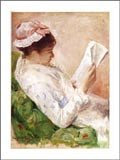 Wylding Hall by Elizabeth Hand
Wylding Hall by Elizabeth HandMy rating: 5 of 5 stars
Elizabeth Hand channels the summer of 1972, deep in an ancient English forest, where five young musicians are secluded from the world, creating their masterpiece. Their Child ballads, mystical and mythic original lyrics, virtuoso musicianship, and sense of wonder have been disorganized and derailed by the death of their lovely lead singer. Their manager thinks that Leslie, with her strong voice and lyrical skills, will energize the music and the remaining members of Windhollow Faire.
Wylding Hall reveals itself as a portal to very old magic, perhaps older than the perspective-bending barrow deep in the woods. By the time the young musicians record the album during a spontaneous outdoors session - photographed haphazardly by a young teenager with his first Instamatic - each member has been wounded by a mystery, and has discovered uncanny links to past tragedies. Have they also seen a ghost?
The short novel is structured as the transcript of a 21st century documentary, narrated in turns by each of the band members and participants - all but one, the beautiful, brilliant Julian, whose disappearance decades before was linked to a very strange young girl, and a very strange melody...
Did you enjoy Uprooted by Naomi Novik? Do you eagerly await the work of Charles de Lint or Pamela Dean or Terri Windling? Does your playlist include Loreena McKennitt, Pentangle, Steeleye Span, or Fairport Convention? This is your book. Anyone who loves folk-tinged fantasy will love it too. The only thing that will disappoint you: there is no soundtrack. Maybe someone will put together a Spotify list.
I received an ARC of this book from NetGalley.
View all my reviews















